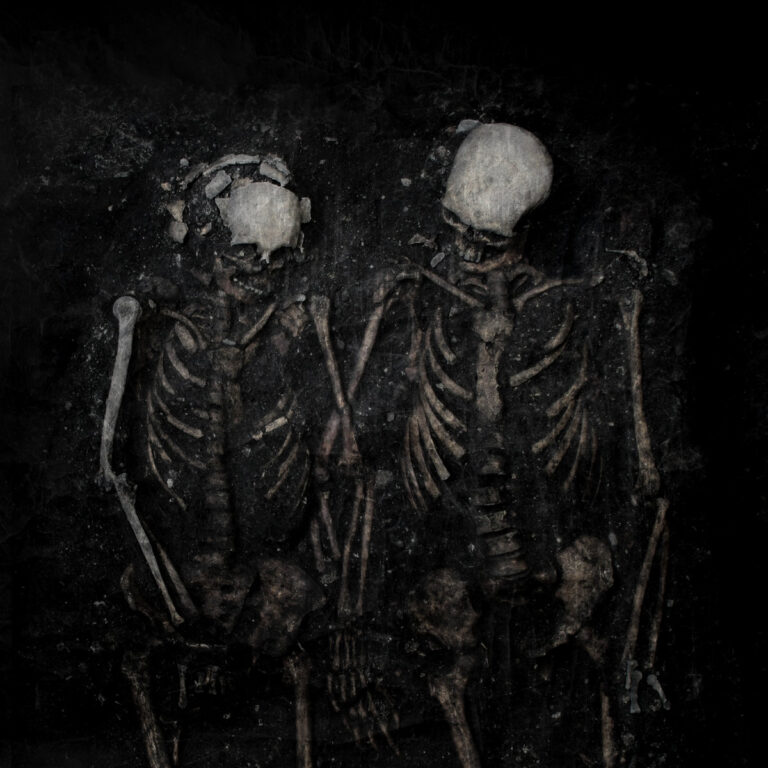A few months ago, I came across a folder of newspaper cuttings when sorting through some old belongings. Presumably collected by my great-grandparents, the articles dated to the early thirties, all clipped from the same section of the local paper. ‘Folklore of the District’, a column detailing supernatural goings on in the area of South Wales my family has called home for over a century. While the subject matter varied, the omen of death was a recurring theme, the relatively small geographical area possessing a multitude of visions and visitations that were said to foretell shipwrecks, mining disasters or deaths in a family. There is mention of a red dog with blazing eyes, the witch-like Gwrach y Rhibyn (hag of the mist), and “The Old Man of the River,” a spectre that would rise from the water like a terrible shadow. And then things more general and commonplace. As one piece dated 4th April 1933 puts it, “Belief in the Phantom Funeral, the Canwyll Gorff (corpse candle), the Deryn Corff (corpse bird) and all such weird death portents was general.”
Cóiste Bodhar, the new record by The Phonometrician out now on Lost Tribe Sound, is named after a similar Celtic folktale, this time from Ireland. The Cóiste Bodhar is a death coach that was said to move through a town or village, driven by a headless coachman and his four black horses. To see or hear this visitor was a terrible warning, a portent of death for either the witness or a close family member. The album takes inspiration from these tales to explore both the concept of death and our relationship with it, the strange combination of inevitable mundanity and arcane superstition and the role of art and ritual in every culture’s attempt to explain and cope with it.
The recording project of Mexico City-based composer Carlos Morales, The Phonometrician creates dark, folk inflected ambient/neoclassical music that fits neatly alongside other Lost Tribe artists such as William Ryan Fritch, Western Skies Motel and Alder & Ash (aka Adrian Copeland, who guest stars with cello on the track ‘Death Rides a Horse: Part II’). Morales constructs his compositions from a palette of acoustic guitar, Venezuelan cuatro and synths, the stringed instruments’ cyclical melodies moving above a collection of low-end groans and stomps and thuds, all of which add a foreboding depth and weight. This ominous, uncanny atmosphere is set right from the beginning, opener ‘Death Rides a Horse: Part I’ embodying the approaching coach as it gathers momentum, like a cloud of dust in the distance growing larger as it’s thrown up by those four black steeds.
[bandcamp width=100% height=120 album=2429642483 size=large bgcol=ffffff linkcol=0687f5 tracklist=false artwork=small track=3661805627]
But if ‘Part ‘’ sees the death coach on the horizon, ‘Death Rides a Horse Part II’ sees it arrive in all its terrible glory. A piece all galloping hooves and quick snorted breaths, Copeland’s cello screaming in an awful hum that sends the townsfolk fleeing to their homes and locking their doors. The sound of fear manifest as an otherworldly visitor, and whether this visitor is real or imagined is beside the point. Because it is the result of thousands of years of ritual and superstition, of genuine emotions of terror and grief.
[bandcamp width=100% height=120 album=2429642483 size=large bgcol=ffffff linkcol=0687f5 tracklist=false artwork=small track=1832338508]
The funereal march of ‘Death is a Woman’ is a patient slow-burner, making its way unhurried towards its inevitable conclusion, while ‘I See You’ pairs signature tumbling melodies with distorted gusts and howls, like an alien wind across some scorched plain. In comparison, ‘The Light’ feels like something of an aftermath, a misty dawn-time calm descending with the faint solace of weak morning light. It’s just one moment on the record of something like peace and is indicative of how The Phonometrician refuses to simplify its complex subject matter. Death and its surrounding customs are handled with far more than the obvious sense of doom. So while Cóiste Bodhar has its bleak moments, there are feelings too of acceptance, a renewed vigour for life, and even wonder at the sheer unknown that we will all face eventually.
And this is the record’s ultimate strength. The Phonometrician avoids empty platitudes and refuses to offer simple answers, swapping faux wisdom for the instinctive and the ritualistic. In doing so he captures the darkly magnetic pull of the folktales that have been told by people the world over, and both laments and celebrates the eternal mystery that we are no closer to unravelling today. Because no matter where we are from, or how far we feel we’ve come, death is unyielding, and belief in its weird portents will continue to be general.
Cóiste Bodhar is out now via Lost Tribe Sound and is available from The Phonometrician Bandcamp page.

